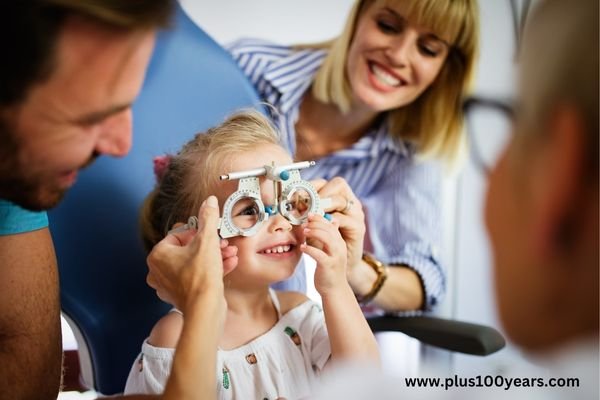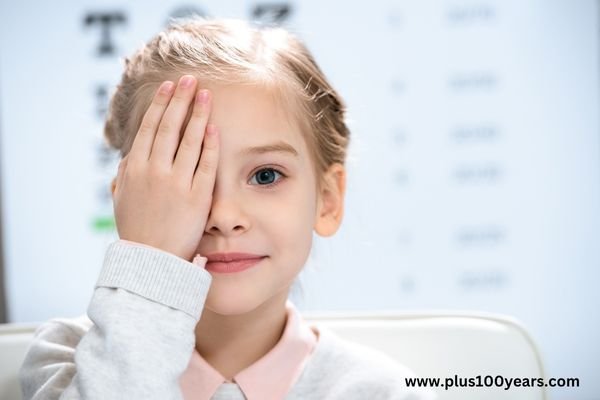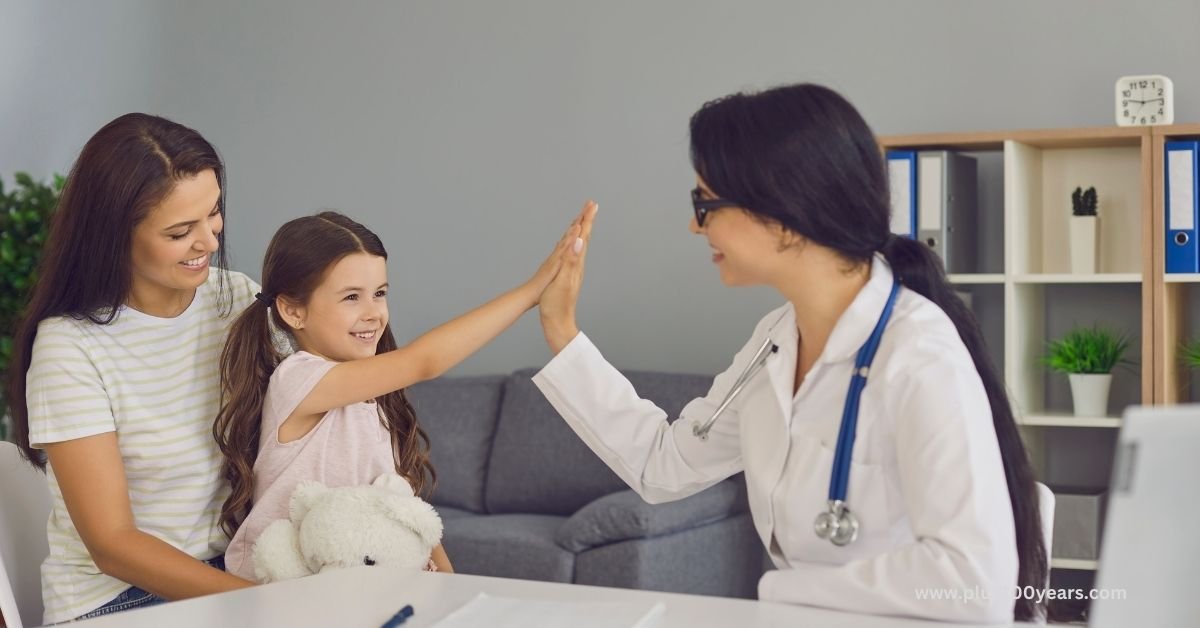Updated: 01-08-2025; Author name: Dr. Mahesh Garg
As an ophthalmologist, I have seen an increase in the number of parents coming to my office in recent years with concerns about the condition of their children.
Because of the spread of the screen in our daily lives and the fact that academic pressure begins before, children today face new and increasing risks.
As a pediatric ophthalmologist, part of my daily work involves protecting the vision of your children and helping families to address any problems.

Why do I swear by child-specific eye care?
Trust me, a child’s eye is more than adults’ accurate copy. Silent problems can arise and worsen.
I have seen children through school health camps, only after months of getting to their clinic, having the textbooks have trouble reading.
Last summer was a quarter of my consultation for the first time with customers, mainly young children whose parents knew about a visual problem, even though the child was quiet.
In my experience, it is important to find out the first discovery of situations such as myopia in childhood or elevated intraocular pressure. It’s not just about identifying problems; It’s about future security.
What Tips Me Off: Subtle Characters Parents Share With Me
One thing that I usually advise parents to should follow their feelings if they look strange. I often see the following symptoms and talk about them with families:
✅ Tilt your head or cover an eye
✅ Squeeze, rub or excessive eyelids
✅ Avoid focus-demanding activities, such as reading or a puzzle.
✅ Headache or tired eyes after school hours
✅ Looks disorganised during class work, or fails to track words as you read
✅ Visible in the eye that flows, crosses or persistent redness
Sometimes problems such as amblyopia (lazy eye) are completely uncontrolled without a comprehensive examination.
This is why I always emphasise the importance of regular eye examination, even when there are no clear symptoms.
My 10 Go-To Tips, Straight from Clinic to Home
1. Get those eyes checked early.
Don’t wait for a problem. I recommend an exam at birth, at age 3, before your child enters school, and every couple of years after, especially if there’s a family history or your paediatrician flags a concern.
2. Take screen breaks, the 20-20-20 rule still works.
Every 20 minutes of screen time, encourage your child to spend 20 seconds looking at something 20 feet away.
It might sound basic, but I’ve seen it delay the onset of myopia in more than a few young patients.
3. Let them play outside, it’s medicine for the eyes.
Before video games and YouTube took over, kids’ eyes stayed healthier thanks to outdoor play. I advise every parent to introduce games under natural light, daily, if possible.
4. Feed healthy eyes
Leafy greens, carrots, oranges, eggs, and good fish contain vital nutrients for healthy eyes.
5. Teach good hygiene
Kids touch everything, including their faces! I remind families to teach hand-washing and discourage eye-rubbing to prevent infections and injuries.
6. Insist on eye protection.
Protective goggles during sports or risky activities can prevent up to 90% of eye injuries.
7. Spot Myopia Early
If a kid suddenly starts missing cues in the classroom or loses enthusiasm for activities that require seeing detail, check in with your eye doctor.
8. Know the rare but real threat of pediatric glaucoma.
I often come across anxious parents who notice sensitivity to light or unusually large eyes, both red flags, even if rare.
The earlier we intervene, sometimes with Glaucoma surgery, the better the outlook.
9. Don’t skimp on sunglasses.
UV protection isn’t just for grown-ups. Kids’ eyes are even more vulnerable, and a simple pair of sunglasses can keep major trouble away.
10. Make it fun
One young patient of mine decorated her eye patch with stickers; another made eye drops for a game with his siblings—anything to keep care consistent and less scary.
When I Tell Parents: Time to Book That Specialist Visit
There is no “waiting and watching” for vision problems in my clinic. If you look at warning signals, work works.
If your child has a family history of optic nerve problems, myopia or early detection of glaucoma, then donation.
It is worth quickly examining any referral with concerns raised by the paediatrician or teachers.
Waiting in some situations can cause a significant window of opportunity for initial glaucoma treatment or extend problems that can be easily removed.

What All These Years Have Taught Me
I am very happy to help families preserve their children’s visions.
Regular exams, smart home practice and quick care for any questions will help children ensure that children have healthy, clear views in all their developmental stages.
I will tell you that the learning of your child and life’s joy are very impressive from his point of view.
Let’s meet together and prioritise their eye health as our primary concern.
Do not hesitate to contact a local pediatric ophthalmologist if you have any other concerns or require guidance on your child’s case.
Early prevention and intervention are always the best treatment.
Author’s Bio: Dr. Mahesh Garg is a senior ophthalmologist with over 26 years of experience in comprehensive eye care. He specialises in advanced cataract surgery, including phacoemulsification and premium intraocular lens implantation.
As the founder and chief consultant at Nihar Netralaya Eye Hospital, Indore, Dr. Garg is committed to delivering patient-centric care with the latest diagnostic and surgical technologies.
He regularly shares insights to help patients make informed decisions about their eye health.

